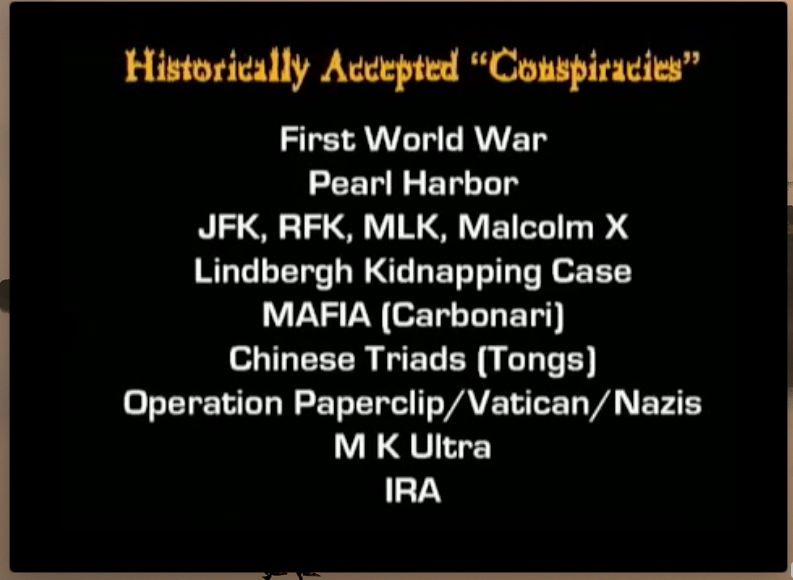Theory, Hypothesis and Conspiracy
Most people do not know what a theory is, what a conspiracy is, but they do have a hypothesis of what a conspiracy theorist is.
First, what is the difference between these terms?
Fact: An observation about the world around us
Hypothesis: A proposed explanation for a phenomenon made as a starting point for further investigation. An assumption based on facts but is yet not proven to have any value. A hypothesis can be tested and if found to match scientific criteria, we can use the hypothesis as a foundation for theory.
Theory: Is a well-substantiated explanation acquired through the scientific method and repeatedly tested and confirmed through observation and experimentation. We use theories to establish how thing are.
Predictions: Based on the theory we can make predictions about the future
Law: A statement based on repeated experimental observations that describes some phenomenon of nature. Newtons Law of Universal Gravitation (but the Why gravity happen is The theory of Gravity). Other laws are laws of thermodynamics, Boyle’s law of gasses.
If a law were ever to be shown false, any science built on that law would also be wrong.
Quantum Mechanics: Questions many theories
1590s, “a particular statement;” 1650s, “a proposition, assumed and taken for granted, used as a premise,” from Middle French hypothese and directly from Late Latin hypothesis, from Greek hypothesis “base, groundwork, foundation,” hence in extended use “basis of an argument, supposition,” literally “a placing under,” from hypo- “under” (see hypo-) + thesis “a placing, proposition” (from reduplicated form of PIE root *dhe- “to set, put”). A term in logic; narrower scientific sense is from 1640s.
1590s, “conception, mental scheme,” from Late Latin theoria (Jerome), from Greek theōria “contemplation, speculation; a looking at, viewing; a sight, show, spectacle, things looked at,” from theōrein “to consider, speculate, look at,” from theōros “spectator,” from thea “a view” (see theater) + horan “to see,” which is possibly from PIE root *wer- (3) “to perceive.”
Well known theories: Einstein’s General Relativity theory, Darwin’s theory of evolution, the germ theory of disease, economic theory, scientific theory, music theory, etc. etc.
Remember; The speed of light is based on a theory and is limited within the theory. Hence the calculation of the actual point of time when the Big Bang happened never adds up
mid-14c., “a plotting of evil, unlawful design; a combination of persons for an evil purpose,” from Anglo-French conspiracie, Old French conspiracie “conspiracy, plot,” from Latin conspirationem (nominative conspiratio) “agreement, union, unanimity,” noun of action from past-participle stem of conspirare “to agree, unite, plot,” literally “to breathe together” (see conspire).
Earlier in same sense was conspiration (early 14c.), from French conspiration (13c.), from Latin conspirationem. An Old English word for it was facengecwis.
Taken from www.MincLaw.com :
THE ELEMENTS OF A CIVIL CONSPIRACY
The following five elements are generally required to prove the tort of civil conspiracy:
• There are two or more persons involved.
• The defendants have an unlawful objective.
• The defendants come to an agreement on the objective or means to achieve the objective.
• The defendants commit one or more overt acts in furtherance of the conspiracy.
• The defendants’ actions result in causing an injury or damages to the plaintiff.
Examples from US law:
- Conspiracy to commit libel
- Conspiracy to commit felony
- Conspiracy to defraud
- Conspiracy to distribute (drug crime)
We can conclude that the conspirators of a conspiracy are the ones deserving the attention and consequences. Those who are merely making a hypothesis about a conspiracy should be free to ask questions.
We can also conclude that to be a “conspiracy theorist” requires high analytical and research skills with application of scientific methodology to their research and subsequent theory.

